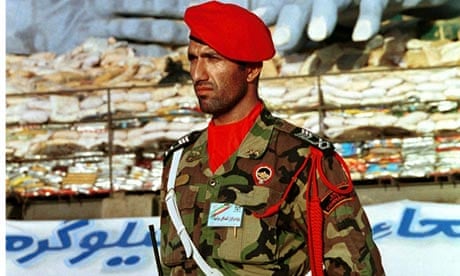Human rights groups have urged the government to heed the recommendations of an influential parliamentary committee that has told the government to stop funnelling money into anti drug-trafficking programmes in countries that administer the death penalty.
The Observer has reported how, over the past decade, the UK has given millions of pounds to help Pakistan, China and Iran combat drug smuggling. Some of the money has been used to train staff to spot potential smugglers and to supply sniffer dogs and scanners.
But MPs and human rights groups are horrified by credible claims that the increased aid has met with a corresponding rise in arrests which, in turn, has led to more people ending up on death row, including several Britons.
Human rights groups estimate that at least 400 people have been executed for drugs offences in Iran alone since March. There are claims that the Tehran regime has used the executions to eliminate political opponents.
Now the home affairs select committee has urged the government to halt aid to such countries. "The government should not turn a blind eye to capital punishment and other human rights abuses affecting those involved in the drugs trade," the committee has warned in a recently released report. "In particular, we recommend that the government ensure that no British or European funding is used to support practices that could lead to capital punishment, torture or other violations."
Human rights groups have long been uneasy about UK aid for anti drug-trafficking programmes. There is clear evidence that many of those arrested and executed are "mules" who have been forced into smuggling by gangs.
"Every government should ensure its aid doesn't facilitate serious human rights abuses," said Kasia Malinowska-Sempruch, director of the global drug policy programme at Open Society Foundations. "But from the United Nations drug control agencies on down, it does not appear this is being done sufficiently. Turning a blind eye to human rights violations is absolutely not acceptable." Several governments have begun to rethink their funding for drug enforcement in countries that practise the death penalty.
"We trust that the government will act on the HASC's recommendation," said Damon Barrett, deputy director of the charity Harm Reduction International. "The UK should refuse to pay for the worst excesses of the war on drugs, and instead scale up funding to help people affected by drug-related harm."

Comments (…)
Sign in or create your Guardian account to join the discussion